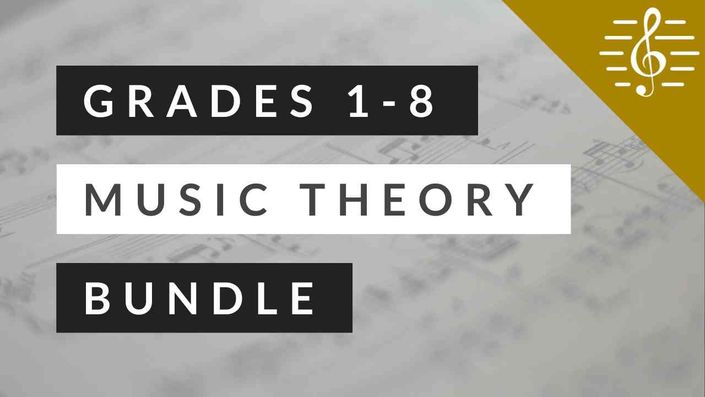Bundle Course
Become an all-round expert in music theory.
It's our belief that every musician needs to have the theory knowledge that supports their playing, singing, or composing skills. This course covers the complete topic of music theory, right from the very fundamentals all the way up to the application of advanced theoretical techniques. It features clear explanations of all the aspects of general music notation and the very basics of music theory all the way up to high-level harmonic language, including chromatic chords, and the rules of harmony. Many worked examples and practice exercises give insights into all aspects of music theory and how it relates to pieces, as well as writing harmony, realising figured bass, melodic composition and analysis. Definitions of important words, concepts and musical markings are all included along with plenty of specimen questions and many helpful tips for students concerning what works well and what to avoid. As well as being suitable for candidates preparing for ABRSM music theory exams, this course also provides and excellent resource for anyone wishing to develop everything from the ground up and learn expert music literacy skills.
















